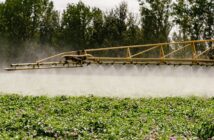Simon Fox, MD of Emerald Research Ltd, learned this week that Defra was delaying the release of its consultation “Creating an Enabling Regulatory Environment for Enhanced Efficiency Fertilisers” that is evaluating the regulatory approaches to biostimulants.
Defra was due to publish the consultation in August 2021, but as we move into September, the industry has been told that “Defra is running behind schedule and we still do not know when the consultation documents will be issued.”
As the industry has been given no update on when it can expect to see the proposed regulatory options, it can only hope that the delay on their side will be reflected in the length of time the industry and wider stakeholders, such as food retailers, environmental bodies and farmers, will be given to respond. The current proposed timeline cites October 2021 as the date for the end of the consultation.
Optimistically, perhaps Defra has reflected on the course of action proposed and realised the pointless bureaucracy it would impose and are therefore defining a much lighter touch certification scheme, in the light of the needs to support sustainable agriculture.
The reason for this review is that in 2022 the European Union (EU) will implement EU Fertiliser Regulation, (EC) 219/1009, and while we are no longer a member of the EU, we were committed to this regulation as part of the withdrawal agreement. If the UK follows the same path as the EU, it will require suppliers of biostimulants to have carried out efficacy trials to justify the claims of the effect of their biostimulants.
The proposed timeline indicates that Defra’s ambition is to have the new regulatory framework fully implemented by September 2022, just twelve months from now. This leaves the industry very concerned that they will potentially only have one growing season in which to meet the research demands of the legislation (depending on if they are willing to accept previous trial results or not).
This could result in farmers and growers having little or no choice of biostimulant products in the 2023 season, instead having to rely on pesticides and fungicides. This all seems at odds with the Government’s ELMS initiative and a backward step for an industry that’s aiming to be sustainable, reduce its carbon emissions.




